Church “Innovation” Grows, Attracts International Attendees
By Ohio Conference/Visitor Staff
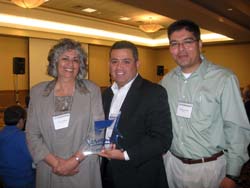 The fourth annual National Conference on Innovation recently held in Columbus, Ohio, attracted twice as many participants as the first such gathering in 2005. Attendees came from all over the United States and also from Canada, Scotland, and Australia. The three-day event has become the premier gathering of innovators and missional entrepreneurs within the Seventh-day Adventist community. The conference was organized and is supported by a number of denominational organizations, institutions, and individuals to:
The fourth annual National Conference on Innovation recently held in Columbus, Ohio, attracted twice as many participants as the first such gathering in 2005. Attendees came from all over the United States and also from Canada, Scotland, and Australia. The three-day event has become the premier gathering of innovators and missional entrepreneurs within the Seventh-day Adventist community. The conference was organized and is supported by a number of denominational organizations, institutions, and individuals to:
1. Provide a forum for conversations about the future and how the church might relate to that future;
2. Stimulate learning and discovery, and inspire bold, creative experimentation;
3. Validate the critical role of missional entrepreneurs in moving the church into the future; and
4. Contribute to creating a culture of innovation within the Adventist church.
“Institutions are rarely the source of innovation. The purpose of institutions is to preserve the innovation of the previous generation,” noted Raj Attiken, president of the Ohio Conference—one of the sponsors of the event—in his welcome address. “If innovation is to occur, we must create a culture of innovation within the organization—a culture that affirms and validates the role of the innovator; a culture that protects its innovators; a culture that values its innovators; a culture that fosters risk-taking; and a culture that has a high threshold for failed experiments.”
World-renowned sociologist from Princeton University (N.J.), Robert Wuthnow, PhD, opened the conference with a review of current demographic and social trends in the United States. He identified the greatest ministry opportunity for the church right now as that of engaging 20-and-30-year-olds. James Tucker, PhD, professor of Educational Psychology at the University of Tennessee, described the process of how people learn best, and how reality is often counterintuitive to conventional wisdom. Kelly Monroe Kullberg, founder of Harvard University’s Veritas Forum, talked about this medium, which engages students and faculty on 75 secular campuses in discussions about life’s hardest questions and the relevance of Jesus Christ to all of life.
In one of two presentations, internationally-known Christian historian, author, speaker, and futurist Leonard Sweet contrasted what he named the “Gutenberg Generation” with the “Google Generation,” identifying the challenges and opportunities for communicating the gospel in the current cultural context. Julius Nam, PhD, associate professor of Religion at Loma Linda University (Calif.), had the audience fully engaged in his presentation on the innovations that have occurred in the development of Adventist theology since the mid-1800s and the implications for the future.
Program features such as “Table Talk,” “The Idea Lab,” and “After Hours” allowed participants to network and to share ideas. Daily worship and devotional periods provided time and opportunity for thoughtful reflection and personal worship. Principles of innovation from the business world were introduced through The Business of Innovation video series.
The Hillsboro (Ore.) Spanish church was named Innovative Church of the Year. Vervent, the North American Division’s Church Resource Center, presented the award.
The 5th annual National Conference on Innovation will be on October 4-6, 2009, at the same venue—the Embassy Suites Hotel, in Dublin, Ohio.
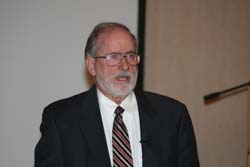
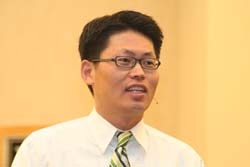
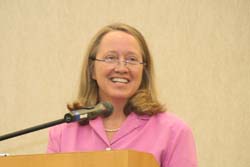
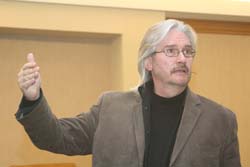
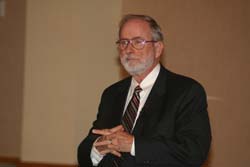
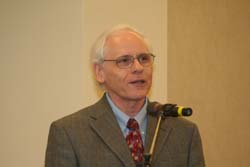

Add new comment